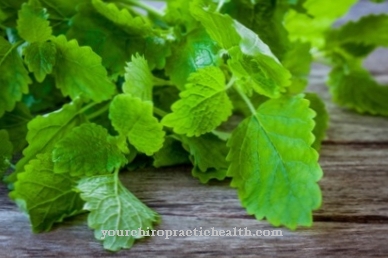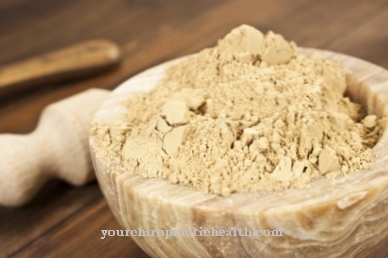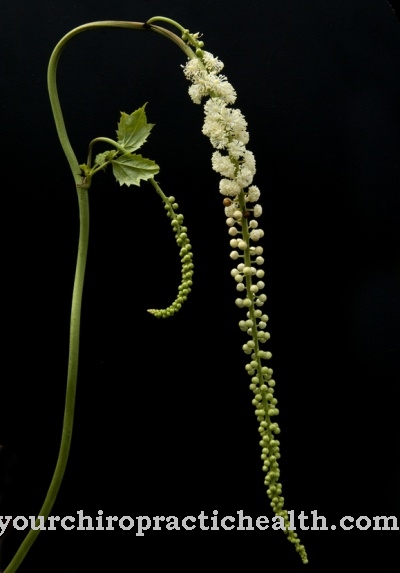Burns can result from naked flames, but also from scalding, hot gases or vapors and from strong sunlight. When treating burns, there are important rules to be followed when using home remedies.
What helps against burns?

The most important measure after a burn is to cool the affected skin areas so that the heat does not penetrate deeper into the tissue in the first few minutes after a burn injury.
At a later point in time, applied cold only brings about the relief of minor pain. Both running water and cotton cloths soaked in water are suitable for cooling. While small burns should dry out in the air, larger burns and burn blisters are covered with sterile cloths in order to avert the risk of infection. It is important to use cloths that do not form fluff. First-aid kits often contain sterile aluminum foil that can also be used to cover burn wounds. The affected areas of skin are padded before bandaging.
Avoid touching the burn wound with the hand to prevent germs from getting into the wound. Since burn blisters protect the skin underneath, they must not be pierced. If a blister opens, there is a risk of infection. If a bladder hurts, the liquid may be suctioned off by a doctor. Cooling ointments are allowed for minor and superficial burns. In the case of extensive burns or burns that extend into deeper tissue layers, ointments make the medical diagnosis more difficult and therefore cause more harm than good.
Ointments that contain fat should generally not be used as they keep the heat in the burn area. If a burn has not healed after ten to fourteen days, a doctor should be consulted. Careful handling of steam, hot objects and open fire provides preventive protection against burns. Sunburn can be avoided by slowly getting used to the sun and using sunscreens with a good sun protection factor.
Quick help
In the event of burns, the skin must be cooled immediately with cold compresses or cold water for around 15 to 20 minutes if possible. Significantly longer cooling should be avoided in order to avoid cold damage. In the event of burns, the water should first run over the clothing before it is removed from the body after a certain amount of cooling.
If you get scalded, however, the hot clothing is usually removed immediately to stop the heat on the skin. If the injured person's clothing is stuck to the wound, a doctor must be consulted immediately. Ice cubes or ice water must not be used for cooling (as they are associated with the risk of local frostbite), only cold and clear tap water. Restlessness, cold sweats, tremors, or paleness are signs of shock. In this case, the burn victim's legs should be raised so that blood can flow to the vital organs of the body.
Restricting clothing is opened. Covering a burn victim with emergency blankets, conventional blankets or warm clothing protects against the threat of hypothermia. If the injured person loses consciousness, he must be brought into a stable lateral position so that his tongue cannot block the airways. If breathing is interrupted, resuscitation measures, in particular chest compressions, must be carried out immediately.
Alternative remedies
In addition to clear tap water, lime blossom tea and sauerkraut juice can also be used as coolants in soaked cotton towels. The egg white of a fresh hen's egg, which is applied to the burn, acts like a natural plaster and sticks the burn. This prevents infection and makes it easier for new skin to form.
The enzymes in the protein promote wound healing. A fresh slice of onion or a raw potato slice on the burn wound also has a soothing effect. For cooling ticks and to relieve pain, burn blisters can be coated with quark or natural yoghurt if they are not open.If the tongue is burned, a cooling sip of cream will help. A cloth soaked in aloe vera juice that is placed on the burned skin prevents the formation of scars and aids the healing process.
Alleged home remedies such as flour, butter, vinegar, oil or even toothpaste should definitely be avoided in order not to aggravate the pain. In addition, the medical assessment of such a "treated" wound is made more difficult. Home remedies may only be used for minor burns or for first aid in an emergency. Call a doctor or an ambulance immediately in the event of severe redness or obviously more severe burns.













.jpg)

.jpg)
.jpg)











.jpg)